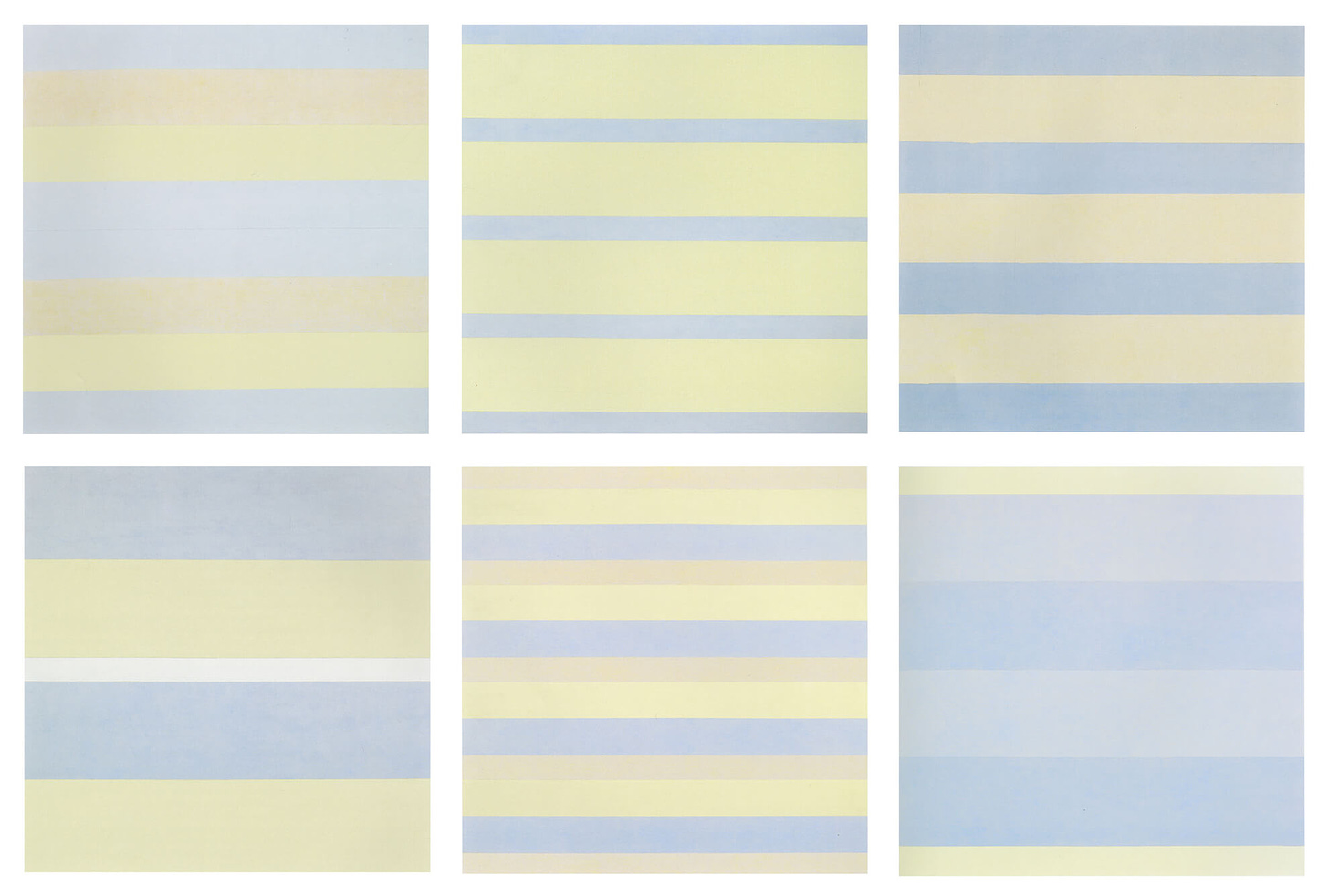I recently came across an interview with the artist Agnes Martin (1912-2004). I now invite you to pause reading and Google her artworks. I love them. They simultaneously stun and soothe. They feel curatorially curative, but only if properly observed and ingested as prescribed.
Do you know how to look at art? Have you learned? Has someone taught you? Did art teach you? Are you self-taught? This seems a life lesson, meaning, an important one that also takes a lifetime.
This interview, recorded in 1997 and which you can watch in full here, has taught me several things that I have been rolling around in my mind, savoring in contemplation and adding to my own repertoire of thought on creation and existence. A medicinal arsenal for future unknown use. Rather than rattle on, I will include here my favorite quotes from the interview for you to take in. Maybe she’ll get you thinking too.
“So many people don't know what they want and I think in this world, that's the only thing you have to know— exactly what you want most. Now I paint with my back to the world. It took me twenty years to paint unprotected.”
“I didn't get lonely. The best things in life happen to you when you're alone. All revelations. Everyday for twenty years I would say, what am I going to do next? That's how I ask for inspiration. I don’t have any ideas myself. I have a vacant mind in order to do exactly what the inspiration calls for. I don't start to paint until after i have inspiration. And after I have it I make up my mind that I'm not going to interfere. Not have any ideas. The artist has the inspiration but before they can get it on the canvas, they've had about fifty ideas, and then the inspiration disappears.”
"Art is responded to with emotion and the best art is music. That's the highest form of art. Completely abstract….We respond to [music] emotionally. All art is music in that way.”
[The process] is not intellectual at all. And still we have five magazines with people talking about art. I think we don't deserve any credit. I think the inspiration comes to you, tells you exactly what to do, even when you're painting. Tells you every brush stroke. I do take the blame, though. You get shaken between the inspiration and the finished product. You have to take the blame for that. And you can't think about beating the rest of [others making art]. You have to keep a clear picture in your mind.
“The only thing you can think about painting is that you want the painting and you want it to appeal to other people. I don't let in any other thoughts. The worst thing you can think about when you're working is yourself. You'll make mistakes. Once the painting's done, I ask someone if it's a good painting. But I also wait three days before I decide.”
“Somebody once asked me what the happiest moment is when I'm painting. The happiest is when they go out the door, out into the world. Then I don't take any further responsibility. Art is pain. I'm born to do it.”
“I used to meditate until I learned to stop thinking. Before you train yourself to stop thinking there's all kinds of stuff going through your mind. Not anymore. Nothing goes through my mind. I don't believe what the intellectuals put out. They discover one fact and another fact and another and they say, from all these facts, we can deduce this or that. No good. That's just a bad guess. Nothing can come of it but inaccuracy. Never will it be the truth about life.”



One of my heroes and favorite artist of ALL time. She was incredible. When I first saw one of her pieces when I was about 16, I immediately was like “YES. This I get!”.
Ugh that first quote got me. This woman. Discussing such deep, existential questions and so down to earth at the same time.